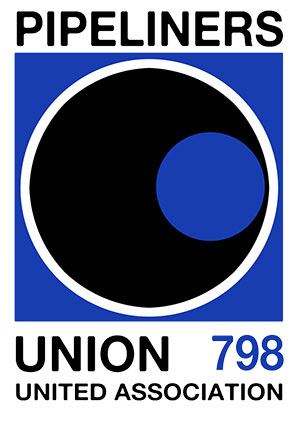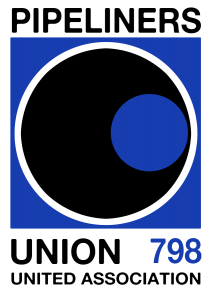Building Trades
What is Building Trades work?
Building Trades work entails working for another Sister Local. The work is very similar to working on one of our compression stations or in fabrication with the probability of work on concrete slabs in the construction portion of a building. There may be times where work must be performed on scaffoldings at elevations ranging from 8-100 feet. Any scaffolding work that is more than six feet off the ground, they will insist that you wear a body harness and be tied off. There are chances that you may be asked to build your own scaffolding. If any work is higher than 18-24 feet, they tend to use professional scaffold builders. The West coast, most commonly Arizona, California, and Colorado are states where the Sister Locals will often require you to wear hard hat hoods. Many Sister Locals will also require you to take various Safety and Weld Procedure classes. There are areas of the country where they request you to show up with your own 10 Panel Drug Test.
An advantage of working Building Trades is that you will retain your spot on the Out-of-Work List. While working on Building Trades, Local 798 does not demand that you drag up when called off the top of the wheel, but only that you provide us with your most recent pay stub proving that you are working for another Sister Local. After leaving a Building Trades job, the same rule applies that you have five business days to call in to keep your original Out-of-Work Date.
Furthermore, working for another Sister Local could help extend your health care and increase your pension. It will also extend your unemployment and gives you money earned in new quarters that will help you open a new claim sooner if needed. Building Trades is an opportunity to diversify and give you income while waiting on jobs of choice. Also, with a good reputation, Local 798 could be the hall all our Sister Locals are willing to call when they need help.
Keys for working through another Local Union
OSHA 10
- Members must have successfully completed an OSHA Safety course receiving an OSHA 10 or OSHA 30 card. If a member does not have an OSHA 10 card, they can obtain one by visiting the following website: careersafeonline.com. For more information on scheduling an OSHA 10 course, please contact the Training Center at (918) 622-0210.
UA Certifications
- Many Local Unions require members to have various UA Certifications. Most common UA Certifications are:
UA 21
Process – SMAW
Pipe Coupon Size – 2” XXS
Wall Thickness – .436”
Filler Metals – E6010 / E7018
UA 60
Process – SMAW
Pipe Coupon Size – 2 ¾” O.D.
Wall Thickness – .625”
Filler Metals – E6010 / E7018
UA 1
Process – SMAW
Pipe Coupon Size – 6” Sch. 40
Wall Thickness – .280”
Filler Metals – E6010
UA 22
Process – GTAW & SMAW
Pipe Coupon Size – 2” XXS
Wall Thickness – .436”
Filler Metals – ER70S-2 / E7018
UA 63
Process – GTAW & SMAW
Pipe Coupon Size – 2 ¾” O.D.
Wall Thickness – .625”
Filler Metals – ER70S-2 / E7018
UA 41
Process – GTAW
Pipe Coupon Size – 2” Sch. 80
Wall Thickness – .218”
Filler Metals – ER309
To schedule a time to test for any UA Certifications, please contact the Training Center at (918) 622-0210.
Members of Pipeliners Local Union 798 Professional Conduct while Traveling
- We are guests when traveling to another Local’s jurisdiction, and we should conduct business accordingly.
- The politics of other Local Unions are not our concern. Therefore, do not involve yourself in their business.
- We are an elite Pipeline Union; your work ethic should represent this quality. You should respectfully work at their pace, when in Rome…do as the Romans do.
- When working for another Local Union, most of the time, they will select their own foreman. If the opportunity arises and you are asked to become a foreman or a GF, lead by example, be professional, and respect the working rules of the jurisdiction you are working in.
- Always remember good communication is the key to success in leadership roles.
- When Local members are being laid off, you should be willing to be laid off and move on.
- Contractors should be equipped with their own tools. Do not bring your personal tools to the job unless the Local Union has a required tool list.


